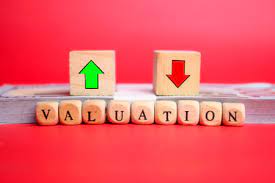
 Asset valuation certificate
Asset valuation certificate
Asset Valuation Certificate for Companies
Introduction
An asset valuation certificate is a critical document for companies that need to determine the financial worth of their assets. Whether for financial reporting, loan applications, mergers and acquisitions, or investment purposes, asset valuation provides clarity and accuracy regarding a company’s holdings. This article explores the concept of an asset valuation certificate, its applications, benefits, limitations, and a comparative analysis, followed by frequently asked questions.
Definition
An asset valuation certificate is an official document issued by a certified valuer, detailing the assessed value of a company’s tangible and intangible assets. This certificate serves as legal proof of asset worth and is use for various business and financial purposes. The valuation process involves market analysis, asset conditions, and depreciation calculations to derive a fair value.
Application of Asset Valuation Certificate
- Financial Reporting: Helps in preparing accurate financial statements by stating the fair value of assets.
- Loan and Mortgage Approvals: Banks and financial institutions require an asset valuation certificate before approving loans.
- Mergers and Acquisitions: Essential for negotiating fair deals when buying or selling a company.
- Taxation and Compliance: Required for tax assessment and ensuring compliance with regulatory authorities.
- Insurance Claims: Used in assessing compensation in case of asset damage or loss.
- Investment Decisions: Assists investors in evaluating the worth of a company before investing.
- Litigation and Legal Proceedings: Acts as evidence in court disputes related to asset ownership and valuation.
Benefits of Asset Valuation Certificate
- Accurate Financial Representation: Ensures a company’s assets are correctly reflect in financial records.
- Enhanced Credibility: Strengthens the company’s trustworthiness in the eyes of investors and stakeholders.
- Better Decision-Making: Provides crucial data for strategic planning and investment.
- Regulatory Compliance: Helps businesses adhere to tax laws and financial regulations.
- Risk Management: Aids in identifying and mitigating risks related to asset depreciation and impairment.
Limitations of Asset Valuation Certificate
- Subjectivity: Different valuation methods can yield different results.
- Market Fluctuations: The assessed value may change due to market conditions.
- Costly Process: Engaging professional valuers can be expensive.
- Time-Consuming: The valuation process can take significant time, depending on the asset type.
- Legal Disputes: May lead to conflicts if valuations are challenge in court.
Comparative Table: Asset Valuation Methods
| Valuation Method | Description | Best Suited For | Limitations |
|---|---|---|---|
| Market Approach | Compares similar assets in the market | Real estate, vehicles | Market fluctuations can affect value |
| Cost Approach | Considers replacement cost of assets | Machinery, equipment | May not reflect market reality |
| Income Approach | Calculates present value of future earnings | Intellectual property, businesses | Complex calculation process |
| Book Value Method | Uses accounting records to determine value | Financial reporting | May not reflect true market worth |
| Discounted Cash Flow | Projects future cash flows and discounts them to present value | Investments, company valuation | Requires accurate forecasting |
Conclusion
An asset valuation certificate is a vital tool for companies, ensuring transparency in financial matters and supporting informed decision-making. While it has its limitations, the benefits outweigh the drawbacks, making it an essential document for financial stability, compliance, and investment strategies. Understanding different valuation methods helps businesses choose the best approach for their needs.
FAQs
-
Who issues an asset valuation certificate?
- Certified valuers, registered appraisal firms, or financial experts issue asset valuation certificates.
-
How long is an asset valuation certificate valid?
- The validity depends on industry standards, regulations, and market conditions, typically ranging from one to three years.
-
What types of assets can be value?
- Tangible assets like real estate, machinery, and vehicles, as well as intangible assets like patents, trademarks, and goodwill.
-
Is an asset valuation certificate mandatory for businesses?
- It depends on the purpose; for financial reporting and tax compliance, it may be require.
-
How is the valuation process conduct?
- It involves market analysis, condition assessment, depreciation calculation, and final valuation reporting.
-
Can a company perform asset valuation in-house?
- While internal assessments can be done, an official certificate requires a certified valuer.
-
What factors affect asset valuation?
- Market conditions, asset condition, economic trends, and depreciation rates.
-
How much does an asset valuation certificate cost?
- Costs vary depending on asset type, valuation method, and valuer fees.
-
Can asset valuation certificates be challenged?
- Yes, they can be contested in legal proceedings if discrepancies arise.
-
How often should a company conduct asset valuation?
- It is recommend every one to three years or when major financial decisions are made.
To visit: https://www.mca.gov.in